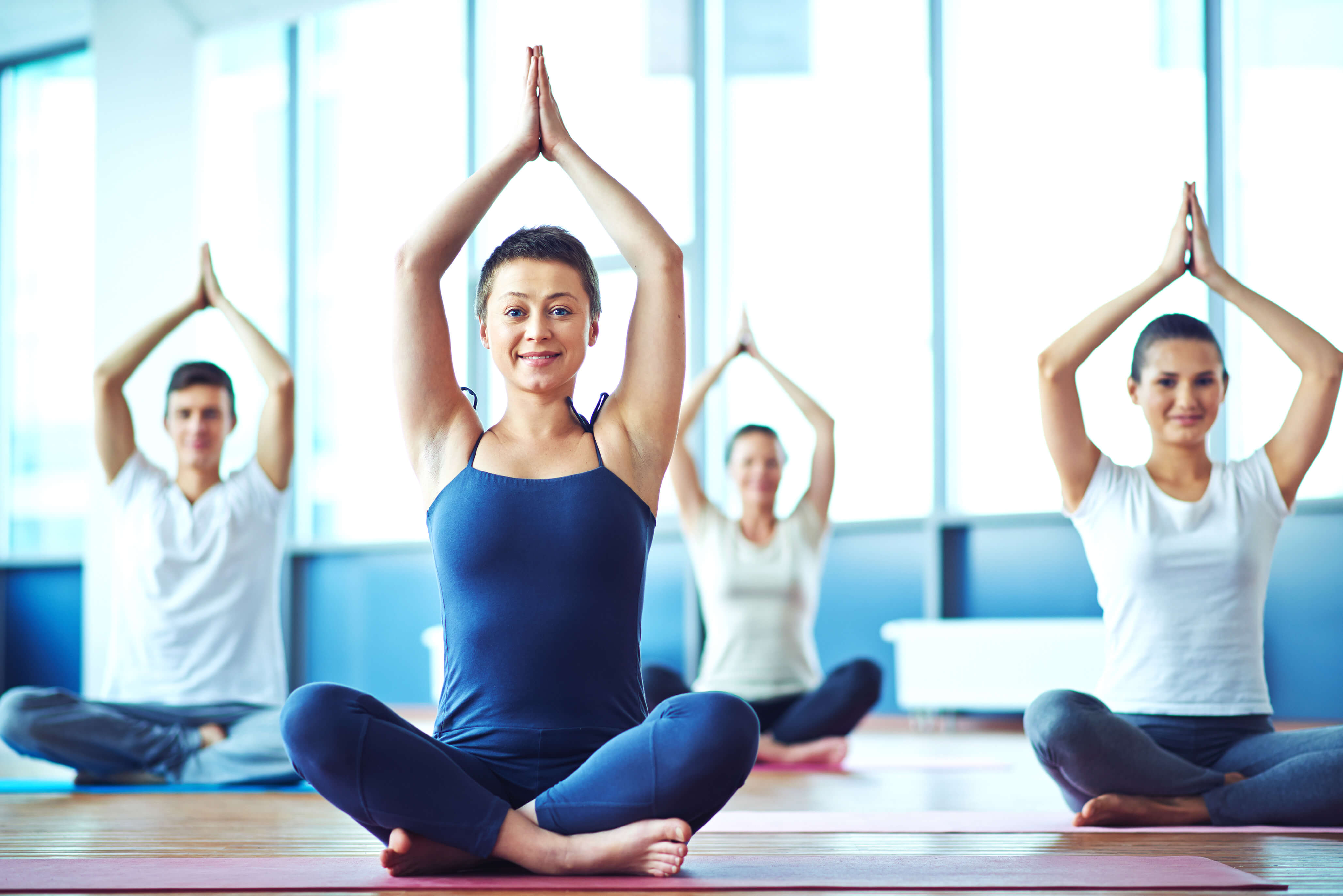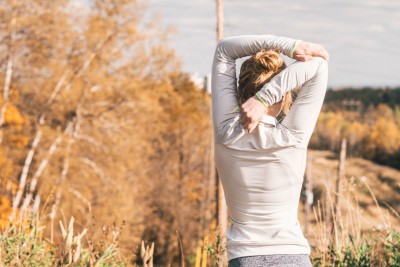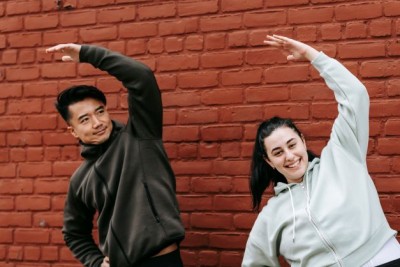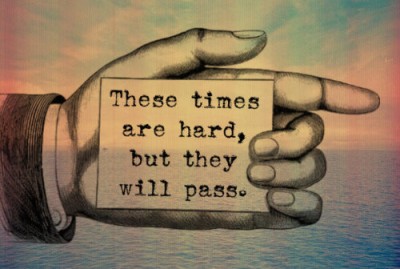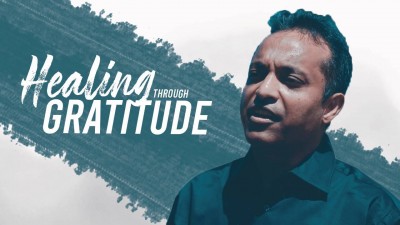People seek out yoga for many different reasons. Often it is for the many physical, mental and emotional benefits it has to offer. Other times it can be a yearning to experience something new.
One of my greatest pleasures, as a yoga instructor, is watching people experience the benefits of yoga that they hadn’t expected; having them walk away from a class, looking pleasantly surprised, and seeing them return, eager to experience more.
Because yoga is so much more than stretching your body or learning to sit still, it provides lifestyle tools that can help you evolve into the best version of yourself, physically, mentally and emotionally.
Yoga has been around for thousands of years; in fact, there is still no consensus on either the exact chronology or the exact origin of when and where it first came about. What we do know is it is not only thousands of years old, it has over time been adopted and adapted worldwide, into many different cultures and lifestyles.
Today, yoga is not only a common practice in our western society, but it is also scientifically backed and medically promoted as being a useful tool for improving both physical and mental health and well being.
So, what exactly is Yoga?
Yoga refers to a series of techniques used to enhance your physical and mental health. The two main components are the physical practices, or ‘Asanas’, and breathing practices, known as ‘Pranayamas’.
Asana: Yoga asanas are the physical practices that work on stretching, strengthening and stabilising your muscles, while stimulating the function of your many internal systems. They vary from static to dynamic postures, and fall into categories, including standing, sitting, reclining, twisting, backward bends, forward bend, inverted, balancing, hip-opening and core strengthening.
Pranayama: Pranayama or breathing practices work on manipulating the breath in specific ways to help balance, calm or invigorate your body and mind. The direct translation is ‘prana’ means energy, or in this case, ‘breath’, and ‘ayama’ means ‘extension’. Different types of breathing include; natural breathing, abdominal breathing, thoracic breathing, clavicular breathing, deep breathing, rapid breathing, breathing in ratios, and alternate nostril breathing.
What Is Yoga NOT?
Misinformation has a way of preventing people from trying things that could ultimately change their lives for the better, and yoga is no exception. Here are three of the most common misconceptions I have heard, regarding yoga:
Yoga is NOT only for fit or flexible people: Dismissing yoga on the grounds of not being flexible or strong enough, would be like dismissing swimming lessons because you can’t swim. Yoga provides tools and techniques to help you strengthen your physical body and your mind at a pace that is appropriate for you. There are classes for all levels, and most asanas have modifications to make them easier or more challenging, depending on your requirements.
Yoga is NOT only for hippy or spiritual people: Though there is a spiritual element that you can choose to enjoy, yoga is primarily about uniting your mind and body by cultivating awareness and progressively improving your physical and mental wellbeing. It is scientifically recognised and backed, which is why companies, such as Google, Nike and Apple, provide yoga sessions for their employees to help keep them happy, healthy, motivated and as efficient as possible.
Yoga is NOT a religious practice: Some people are put off the idea of yoga because they feel it conflicts with their personal religious beliefs. However, yoga is not a religious practice. It does not push any particular theology on practitioners; therefore, it should not interfere with any specific religious belief.
Physical Benefits Of Yoga
Due to the complex understanding and involvement of the many different systems of the body and how they work symbiotically together, yoga is equal, if not superior, to enhancing physical health when compared to regular exercise. Yoga not only engages your musculoskeletal system, enhancing your strength and flexibility, it also stimulates your cardiovascular, respiratory, digestive, nervous, endocrine, immune and lymphatic systems combined.
Yoga has also been shown to improve your heart health, by lowering blood pressure, reduce oxidative stress and regulate the release of stress hormones, which help enhance your immune function. It also has a calming effect on both body and mind, which promotes downtime for your nervous system, helping to regulate your sleeping patterns.
Unlike some forms of exercise that focus on specific muscle groups for aesthetic purposes, asana work to engage all the different muscles that support your spine, making it more aligned with functional fitness. This promotes good posture and physical balance and will help keep you active and independently mobile well into your twilight years. A perfect example of this is Tao Porchon-lynch, a 101-year-old yoga instructor who lives in New York City. She continues to teach regular yoga classes and loves inspiring and motivating others to regenerate their lives.
Mental/Emotional Benefits
Doctors and psychologists world-wide have been embracing the benefits of yoga to help manage numerous mental health conditions as well as promoting general emotional health and wellbeing.
A clinical psychologist Richard Miller, PhD, developed one of the most widely used yoga-based trauma treatments that have participants reporting a reduction in depression, anxiety, insomnia and an increased sense of inspiration, gratitude and control over their lives.
Studies have shown that practising yoga can reduce anxiety by 14.7% after a single session, as well as increasing the perception of both mental and physical energy, alertness and enthusiasm. This promotes inspiration, motivation, and creativity while having a regenerative effect on your mindset.
Real-Life Stories
To put into perspective the above benefits of yoga, let me tell you the story of Charlotte, a young woman from Sydney. After the tragic death of her father, coupled with the stress of moving to another state and studying at university, Charlotte began to experience anxiety and regular panic attacks. This began to have a serious impact on her mental and physical wellbeing and was preventing her from living her life as she wanted, let alone working to achieve her goals.
Charlotte took a year off from her studies and when a councillor she was seeing recommended the benefits of yoga, she thought she would give it a try. Charlotte became so inspired by the positive transformation yoga had on her life she went on to study yoga herself and now volunteers classes for other students at her campus. She helps support, motivate and inspire others as she has been herself.
If you would like to read more about Charlotte, and her positive journey with managing stress and anxiety, her story is available in the Comprosition Story Repositories.
My Thoughts:
I have seen the benifets of yoga first hand. I have seen it inspire and motivate people in ways they had never thought possible, helping regenerate their mindsets into the positive direction they desire. However, many of these benefits develop over time. Sure, I feel confident you will walk away from your first class feeling some of the benefits straight away; however, many of the more profound mental and physical benefits come through regular practice.
If you are finding it hard to motivate yourself to get to a yoga class, then consider setting goals for yoga — you could try starting with once a week?
Comprosition Goal Setting Expert Tracy Shephard suggests setting specific, realistic and attainable goals as an excellent way of working towards achieving positive change and gaining a positive sense of control in your life.
Whether you have a specific need for yoga or not, I highly recommend you give it a try. I feel confident that, like me, you soon won’t be able to imagine your life without it. It will inspire, motivate and regenerate your mind, body and soul!
*Please note: This blog is for education purpose only. If you are experiencing clinical depression, please reach out to your health professional.
Sources:
Alyson Ross and Sue Thomas.The Journal of Alternative and Complementary Medicine.Jan 2010.ahead of print <http://doi.org/10.1089/acm.2009.0044 >
Sung-Ah Lim and Kwang-Jo Cheong.The Journal of Alternative and Complementary Medicine.Sep 2015.ahead of print <http://doi.org/10.1089/acm.2014.0044>
Chacko N. Joseph, Cesare Porta, Gaia Casucci, Nadia Casiraghi, Mara Maffeis, Marco Rossi, and Luciano Bernardi. Hypertension 2005, Slow breathing improves arterial baroreflex sensitivity and decreases blood pressure in essential hypertension, viewed October 2019 <https://www.ahajournals.org/doi/full/10.1161/01.hyp.0000179581.68566.7d>
Wood C. JRSM 1993, Mood change and perceptions of vitality: a comparison of the effects of relaxation, visualization and yoga, viewed October 2019 <https://www.ncbi.nlm.nih.gov/pmc/articles/PMC1293998/>
Catherine Woodyard, Int J Yoga. 2011 Jul-Dec. Exploring the therapeutic effects of yoga and its ability to increase quality of life
<https://www.ncbi.nlm.nih.gov/pmc/articles/PMC3193654/>
Kristen E. Riley & Crystal L. Park .2015. How does yoga reduce stress? A systematic review of mechanisms of change and guide to future inquiry, Health Psychology Review: <https://www.tandfonline.com/doi/abs/10.1080/17437199.2014.981778>
Donnegan, K.F., Setti, A. & Allen, A.P. J Cogn Enhanc (2018) 2: 193.< https://doi.org/10.1007/s41465-018-0082-3>
Shirley Telles, Vaishali Gaur, Acharya Balkrishna. 2009. Effects of yoga practice session and a yoga theory session on state anxiety. <https://doi.org/10.2466/pms.109.3.924-930>
Indu Dubey, Priyadarshee Abhishek, Sanjeev Kumar Gupta, Priyanka Rastogi, Shazia Veqar Siddiqui. 2010. Long-term vihangam yoga meditation and scores on tests attention .<https://journals.sagepub.com/doi/abs/10.2466/pms.110.C.1139-1148#articleCitationDownloadContainer>
Hopkins, J. T., & Hopkins, L. J. 1979. A study of yoga and concentration. Academic Therapy. <https://psycnet.apa.org/record/1981-22155-001>
Andrée-Anne Simard & Melissa Henry (2009) Impact of a short yoga intervention on medical students’ health: A pilot study <10.3109/01421590902874063>
